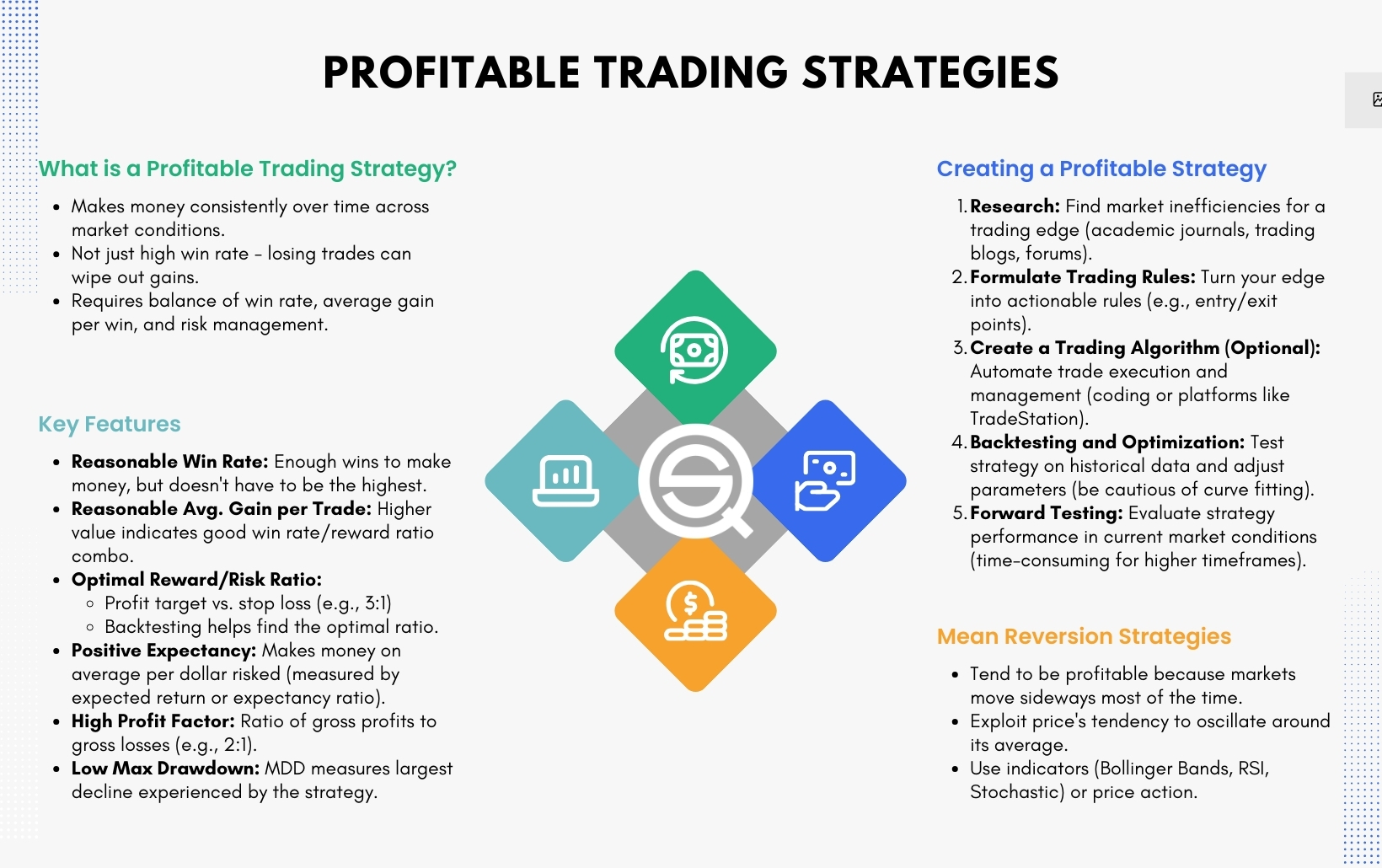How I Developed a High Success Rate Trading Strategy
In the ever-evolving world of trading, developing a high success rate trading strategy is paramount for sustained profitability. This article outlines the journey of creating a trading strategy that consistently delivers positive results. From initial research to real-world application, every step is crucial in building a robust and reliable trading system.
Techno solution

Table of Contents
- Introduction
- Identifying the Need for a Trading Strategy
- Research and Analysis
- Strategy Development
- Implementation
- Case Studies and Success Stories
- Maintaining and Improving the Strategy
- Conclusion
- References
Introduction
In the ever-evolving world of trading, developing a high success rate trading strategy is paramount for sustained profitability. This article outlines the journey of creating a trading strategy that consistently delivers positive results. From initial research to real-world application, every step is crucial in building a robust and reliable trading system.
Identifying the Need for a Trading Strategy
Understanding Market Dynamics
The first step in developing a successful trading strategy is understanding the complexities and nuances of the market. This involves recognizing patterns, trends, and key factors that influence market movements.
Setting Clear Goals
Establishing clear and achievable goals is essential for guiding the development of your trading strategy. Whether it's achieving a specific return on investment or minimizing risk, clear goals provide a roadmap for your strategy.
Research and Analysis
Market Analysis
Conducting thorough market analysis is crucial for understanding the broader economic environment and its impact on trading. This includes studying macroeconomic indicators, market sentiment, and historical data.
Technical Analysis
Technical analysis involves using historical price data, chart patterns, and technical indicators to predict future market movements. This method is vital for identifying entry and exit points in trades.
Fundamental Analysis
Fundamental analysis focuses on evaluating a company's financial health and performance. This involves analyzing financial statements, earnings reports, and industry conditions to determine the intrinsic value of a stock.
Data Collection and Interpretation
Gathering and interpreting data is a critical component of strategy development. This includes collecting historical price data, volume data, and other relevant information to inform your strategy.
Strategy Development
Formulating the Core Strategy
Based on the research and analysis, formulating the core strategy involves defining the specific rules and criteria for making trades. This includes entry and exit points, position sizing, and trade management.
Incorporating Risk Management
Risk management is an essential part of any trading strategy. This involves setting stop-loss orders, defining risk-to-reward ratios, and using position sizing techniques to protect against significant losses.
Backtesting and Optimization
Backtesting the strategy on historical data is crucial for validating its effectiveness. Optimization involves fine-tuning the strategy parameters to improve performance and reliability.
Implementation
Creating a Trading Plan
A trading plan outlines the specific steps and procedures for executing the strategy. This includes trade execution rules, monitoring procedures, and contingency plans.
Resource Allocation
Allocating resources effectively ensures that you have the necessary tools and capital to implement the strategy. This includes trading platforms, software, and initial capital.
Monitoring and Adjusting
Continuous monitoring and adjusting of the strategy are essential to respond to changing market conditions. This involves regular performance reviews and making necessary adjustments to improve outcomes.
Case Studies and Success Stories
Real-World Applications
Real-world case studies demonstrate the application and success of the strategy. These examples provide insights into how the strategy performs under different market conditions.
Key Learnings
Analyzing key learnings from the implementation and outcomes of the strategy helps in refining and improving it. This includes understanding what worked well and what could be improved.
Maintaining and Improving the Strategy
Continuous Learning and Adaptation
The trading landscape is constantly evolving, making continuous learning and adaptation essential. Staying updated with market trends and new trading techniques helps in maintaining the strategy's effectiveness.
Gathering Feedback and Insights
Collecting feedback from actual trading experiences and analyzing performance data provides valuable insights for ongoing strategy improvement.
Conclusion
Developing a high success rate trading strategy involves a systematic approach of research, analysis, and continuous refinement. By understanding market dynamics, formulating a solid strategy, and implementing effective risk management, traders can achieve consistent profitability.